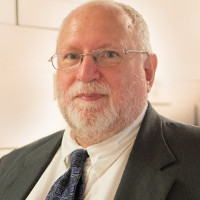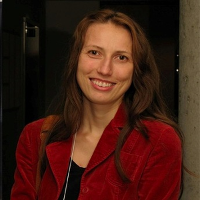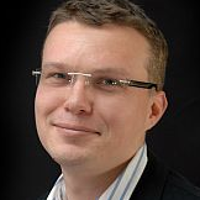Speakers of the conference
| Speaker Information | Participation in The conference | Topic | |
|---|---|---|---|
 | Craig Davies is the CEO for the Australian Cyber Security Growth Network Ltd (ACSGN). Australia's Cyber Security Strategy, launched in April 2016, committed to establish a Cyber Security Growth Centre to position Australia as an attractive location for cyber security research and innovation. The ACSGN has been created to support the development of a vibrant and globally competitive Australian cyber security industry aimed at enhancing Australia's future economic growth and help protect Australia's interests online. | Speaker | Conference Chair |
 | Lukas Rist is a contributing member of the Honeynet Project since 2009, two year member of the board of directors, volunteers as its Chief Research Officer these days. Most of his engagement is focused on working with students, providing project management and incubating ideas. He always had a strong interest in honeypot development, which started in the field of web applications (Glastopf), shifted then into industrial security (Conpot) and focuses currently on generic honeypots (Glutton) and detection technologies (go-dpi) and some reborn love for web apps (Snare). | Speaker | The honeypot, what it was, what is coming |
 | Max Kilger is a Senior Lecturer in the Department of Information Systems & Cyber Security at the University of Texas at San Antonio. Dr. Kilger received his Ph.D. in Social Psychology from Stanford University. He has over seventeen years of experience in the area of information security concentrating on the social and psychological factors motivating malicious online actors, hacking groups and cyberterrorists. Max has written and co-authored a number of journal articles and book chapters on profiling, the social structure of the hacking community, cyberviolence and the emergence of cyberterrorism. He recently co-authored the popular book Reverse Deception: Organized Cyberthreat Counter-Exploitation and with his co-authors has just completed his second book Deception in the Digital Age. Max was a member of a National Academy of Engineering committee dedicated to make recommendations for combating terrorism. He is also a member of a multinational instructional team for a NATO counterterrorism course. He is a frequent national and international speaker to information security forums, federal law enforcement and the intelligence community. | Speaker | Cyber Jihad and Deception |
 | Natalia Stakhanova is an Assistant Professor and the New Brunswick Innovation Research Chair in Cyber Security at the University of New Brunswick, Canada. Her work revolves around building secure systems and includes mobile security, IoT security, software obfuscation & reverse engineering, and malicious software. Working closely with industry on a variety of R&D projects, she developed a number of technologies that resulted in 3 patents in the field of computer security. Natalia Stakhanova is the recipient of the University of New Brunswick Merit Award, the McCain Young Scholar Award and the Anita Borg Institute Faculty Award. She is a strong advocate of Women in IT and co-founder of CyberLaunch Academy, an initiative that aims to promote science and technology among children. | Speaker | Deception in malware authorship attribution |
 | Tan Kean Siong is an independent security researcher and active member of The Honeynet Project (under the umbrella of Malaysian Chapter). He is a member of the Board of Directors at The Honeynet Project. By day, he currently works as an Incident Analyst for various advanced and targeted cyber attacks on a global scale. By night, he enjoys reading the backlog of various honeypot sensors over the net, analyzing and hunting for malicious activities. He contributes efforts in open source network honeypot development, including Dionaea, Honeeepi and Glutton. He has presented in conferences e.g. Hack In The Box, HoneyCon Taiwan and other open source community events. | Speaker | Catching WannaCry using Cyber Deception |
 | Ben Whitham is a cyber security entrepreneur, engineer and the Australian Lead for the Honeynet Project. After a career in the military, Ben worked as a consultant in a number of Australian government and commercial cyber incident response teams. It was during this time he co-founded several companies, including M5 Network Security, were he was co-creator of the Secure Communications Solution, a finalist in the 2012 SC Magazine Mobile Security Product of the Year and winner of the Australian Museum Eureka Award for Outstanding Science in Safeguarding Australia. Now with his new venture, Penten, he continues to consult and design security solutions and has recently completed the work for a Cyber Security Doctorate on implementing a cyber deception system to detect data theft by insiders. | Speaker | Baiting with realistic and enticing honeyfile content |
 | Kara Nance is a Professor of Computer Science and the founder of Security Works, a computer security consulting firm. Her research interests include digital forensics, data systems, security fundamentals, visualization, and computer security. She serves on the Honeynet Project Board of Directors and is a frequent speaker on cybersecurity and associated issues with an emphasis on national security. | Trainer | CTF |
 | Felix Leder leads the detection technology research at Symantec. Taking things apart has been a life time passion for him. His hobbies, like collecting bugs in malware and botnet takeovers, have resulted in successful take-downs of large malicious networks. As a member of The Honeynet Project, he is heavily involved in open source security and has been instrumental in developing a number of malware analysis solutions, including Cuckoo box, Norman's Malware Analyzer G2, Blue Coat's MAA, and Symantec's Content Analysis. | Speaker/Trainer | Unmasking Deception in Malicious Code and Attacks |
 | Maximilian Hils is a PhD student at the University of Innsbruck, Austria. He is one of the main developers of mitmproxy and actively contributes to several other high-profile open-source projects. Starting as a Google Summer of Code (GSoC) student at The Honeynet Project in 2012, he now leads the GSoC program at Honeynet. | Speaker | Google Summer of Code Research and Development at the Honeynet Project |
 | Faiz Shuja is a security expert who brings a tremendous amount of designing, implementing, and managing secure infrastructure expertise. He has been involved in intrusion detection/prevention systems, firewalls, honeypots/honeynets, penetration testing, vulnerability analysis, incident handing, and forensics analysis. His specific research interests include enterprise security monitoring and data analysis. Faiz is a well-established entrepreneur with a long track record of success. He’s the CEO of Rewterz, a specialized information security company. He’s also the CEO of The Honeynet Project, a non-profit, all-volunteer organization dedicated to Honeynet research, and the is president of PAKCON, a non-profit organization which organizes yearly cyber security conventions in Pakistan. He has spoken at various conferences and organizations, including US NSA (National Security Agency), US DoD (Department of Defense), IEEE (Institution of Electronic Engineers), FIA (Federal Investigation Agency), and many more. | Speaker | CEO Comments |
 | Adel Karimi is a security engineer and researcher focused on honeypots, deception based security and active defense. He has been a member and chapter lead at the Honeynet Project since 2010, and recently started Trapbits, an open community of honeypot enthusiasts in Australia. Adel has spoken at several conferences and community events such as BSides and Ruxmon. He earned his MSc in IT engineering from Amirkabir University of Technology in Tehran. | Speaker | Spreading honey around: Using honeybits to mislead attackers |
 | Jurriaan Bremer joined the project over 5 years ago. He has become lead developer of Cuckoo Sandbox, an open source automated malware analysis system. He runs a small team providing consultancy services in and around Cuckoo and is set out to make Cuckoo the best malware analysis sandbox available. | Speaker | Enriching Honeypot results with Cuckoo Sandbox |
 | Emil Tan has experience and expertise in many areas. He started his career as a researcher focusing on incident handling and intrusion deception. He later worked in a Security Operations Centre (SOC). Now, he’s working in the governance, risk management and compliance (GRC) industry. | Speaker | Practical Experience with Honeypots and How to Integrate Them into your Environment |
 | Rusty Bower is an Information Security Engineer and a graduate of the Rochester Institute of Technology. When he is not triaging vulnerabilities, Rusty enjoys speaking about security topics and tinkering with random InfoSec projects in his basement | Speaker/Trainer | Running Deception at Scale - Lessons from Implementing HDFS and machine learning to hunt malicious activity |
 | Michel Oosterhof is currently employed as a Staff Sales Engineer at Splunk Inc. Working from Dubai, United Arab Emirates, he covers the Emerging Markets region. He specialises in security analytics and works with a wide variety of customers across the Middle East and Africa and Eastern Europe. Michel holds an MSc in Applied Physics and is certified as a CISSP, CISM, CISA and GCIH. He runs an open source project called Cowrie, a SSH/Telnet honeypot used to gather threat intelligence on various actors on the internet. | Speaker | Shell Games: Cowrie in the honeypot arms race |
 | Marcin Szymankiewicz is a Lead Cyber Analyst at major global organization. His responsibilities include defending against targeted attacks, incident response and forensics. His area of expertise are network forensics, network traffic anomaly detection, scripting and deep log inspection. He joined the Polish Chapter of The Honeynet Project in 2015. | Trainer | Reverse Engineering of malicious JavaScript Incident Response and Analysis |
 | Mahmud Ab Rahman currently works as Information Security Researcher for NetbyteSEC. Prior to that, he worked as an Information Security Specialist Manager at MyCERT department. Currently he is taking in-charge of tracking botnet, android reverse engineering and malicious documents tracking on APT to analyze and dissect information security threats. | Trainer | Investigating Malicious Office and PDF Documents (Part 1) |
 | Piotr Kijewski works at the non-profit Shadowserver Foundation, where amongst others he helps drive initiatives related to honeypot technologies. Piotr has extensive experience in developing and deploying honeypot based sensor networks on a large scale, which also included installations at a national level in his previous roles at CERT.PL. Active in the worldwide incident response community for the last 15 years, he has orchestrated various botnet disruptions and takedowns. Piotr is the founder of the Polish Chapter of the Honeynet Project. | Speaker | Operating large-scale honeypot sensor networks for fun and (non)profit |
 | Paul Nevin is a career black hat hacker and antidisestablishmentarianist. Having spent the last five years in prison for breaking into Starbucks global payment systems to siphon funds off to impoverished Chilean coffee growers. He was only caught when his associates in Anonymous ratted to police in a plea bargain. As part of his probation requirements he must teach IT security skills to orphans and CEOs. He is on day release to present this talk. You are advised not to approach him carrying any RFID enabled credit cards. | Speaker | The emergence of commercial cyber deception services to degrade (your) hostile cyber actors |
 | Brian Hay is a member of the Honeynet Project, a researcher at Security Works, and a faculty member at the Hume Center at Virginia Tech. He has an interest in virtualization, machine learning, and systems programming. He is a frequent speaker at conferences, and an instructor on a variety of topics in commercial and academic venues. | Trainer | Applying Machine Learning to Cyber Security |
 | Hanno Lemoine is a senior research engineer in the Android team of G Data in Germany. He joined The Honeynet Project in 2015 and is part of the Norwegian chapter. In 2015 and 2016 he was the mentor of the DroidBot GSoC Project | Trainer | Android Reverse Engineering |
 | Hugo Gonzalez is a graduated from the Canadian Instute for Cybersecurity, University of New Brunswick, Canada. He is a faculty member of the Polytechnic University of San Luis Potosi, Mexico. Hugo's current research interests include network security, malware analysis and machine learning. Hugo is a member of the Association for Computing Machinery, the IEEE Computer Society and The Honeynet Project. | Trainer | Android Reverse Engineering |
 | David Watson was the Chief Research Officer and a Director of the Honeynet Project from 2006-2016, helping to co-ordinate and promote the development and deployment of honeynet related security tools worldwide, including organising annual participation in Google Summer of Code (GSoC). He has build and operated many large scale distributed honeynet sensor systems over the past 18 years. David has been a member of the Shadowserver Foundation since 2008, is one of their Directors, and leads their Special Projects Team in support of international Law Enforcement operations. David regularly presents and teaches hands on training classes at information security events, and is passionate about helping network owners and cybercrime victims to defend themselves using tools and information sources that do not necessarily come with strings attached, or huge price tags. | Speaker | Behind the scenes of botnet takedowns |
 | Silvio Cesare has worked in technical roles and been involved in computer security for over 20 years. This period includes time in Silicon Valley in the USA, France, and Australia. He has worked commercially in both defensive and offensive roles within engineering. | Speaker | Conference drinks session and Lunchtime Lock Picking |
